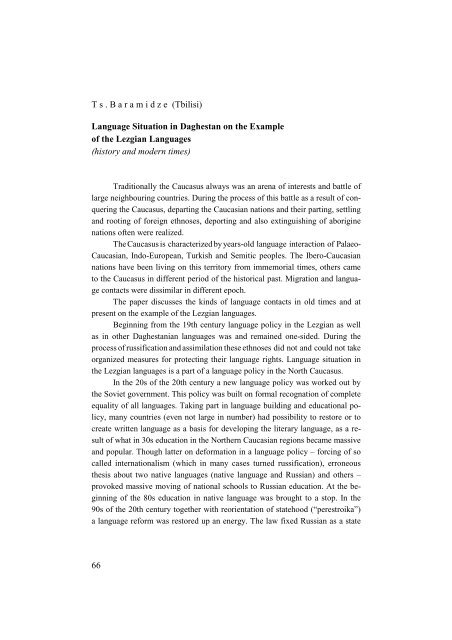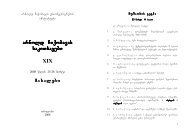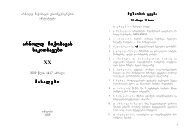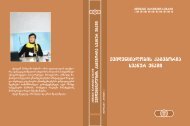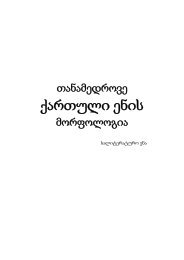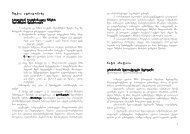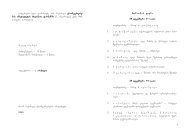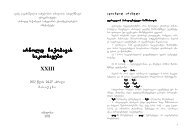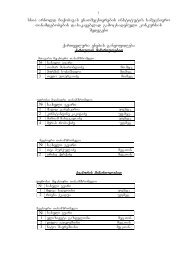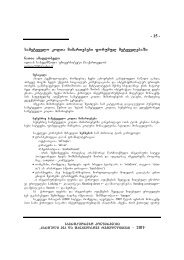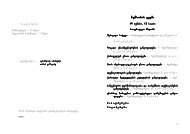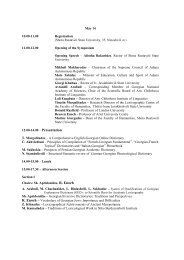5 r. a b a S i a (Tbilisi) bgeraTSesatyvisobis erTi rigisaTvis qarTvelur ...
5 r. a b a S i a (Tbilisi) bgeraTSesatyvisobis erTi rigisaTvis qarTvelur ...
5 r. a b a S i a (Tbilisi) bgeraTSesatyvisobis erTi rigisaTvis qarTvelur ...
You also want an ePaper? Increase the reach of your titles
YUMPU automatically turns print PDFs into web optimized ePapers that Google loves.
T s . B a r a m i d z e (<strong>Tbilisi</strong>)<br />
Language Situation in Daghestan on the Example<br />
of the Lezgian Languages<br />
(history and modern times)<br />
Traditionally the Caucasus always was an arena of interests and battle of<br />
large neighbouring countries. During the process of this battle as a result of conquering<br />
the Caucasus, departing the Caucasian nations and their parting, settling<br />
and rooting of foreign ethnoses, deporting and also extinguishing of aborigine<br />
nations often were realized.<br />
The Caucasus is characterized by years-old language interaction of Palaeo-<br />
Caucasian, Indo-European, Turkish and Semitic peoples. The Ibero-Caucasian<br />
nations have been living on this territory from immemorial times, others came<br />
to the Caucasus in different period of the historical past. Migration and language<br />
contacts were dissimilar in different epoch.<br />
The paper discusses the kinds of language contacts in old times and at<br />
present on the example of the Lezgian languages.<br />
Beginning from the 19th century language policy in the Lezgian as well<br />
as in other Daghestanian languages was and remained one-sided. During the<br />
process of russification and assimilation these ethnoses did not and could not take<br />
organized measures for protecting their language rights. Language situation in<br />
the Lezgian languages is a part of a language policy in the North Caucasus.<br />
In the 20s of the 20th century a new language policy was worked out by<br />
the Soviet government. This policy was built on formal recognation of complete<br />
equality of all languages. Taking part in language building and educational policy,<br />
many countries (even not large in number) had possibility to restore or to<br />
create written language as a basis for developing the literary language, as a result<br />
of what in 30s education in the Northern Caucasian regions became massive<br />
and popular. Though latter on deformation in a language policy – forcing of so<br />
called internationalism (which in many cases turned russification), erroneous<br />
thesis about two native languages (native language and Russian) and others –<br />
provoked massive moving of national schools to Russian education. At the beginning<br />
of the 80s education in native language was brought to a stop. In the<br />
90s of the 20th century together with reorientation of statehood (“perestroika”)<br />
a language reform was restored up an energy. The law fixed Russian as a state<br />
66


